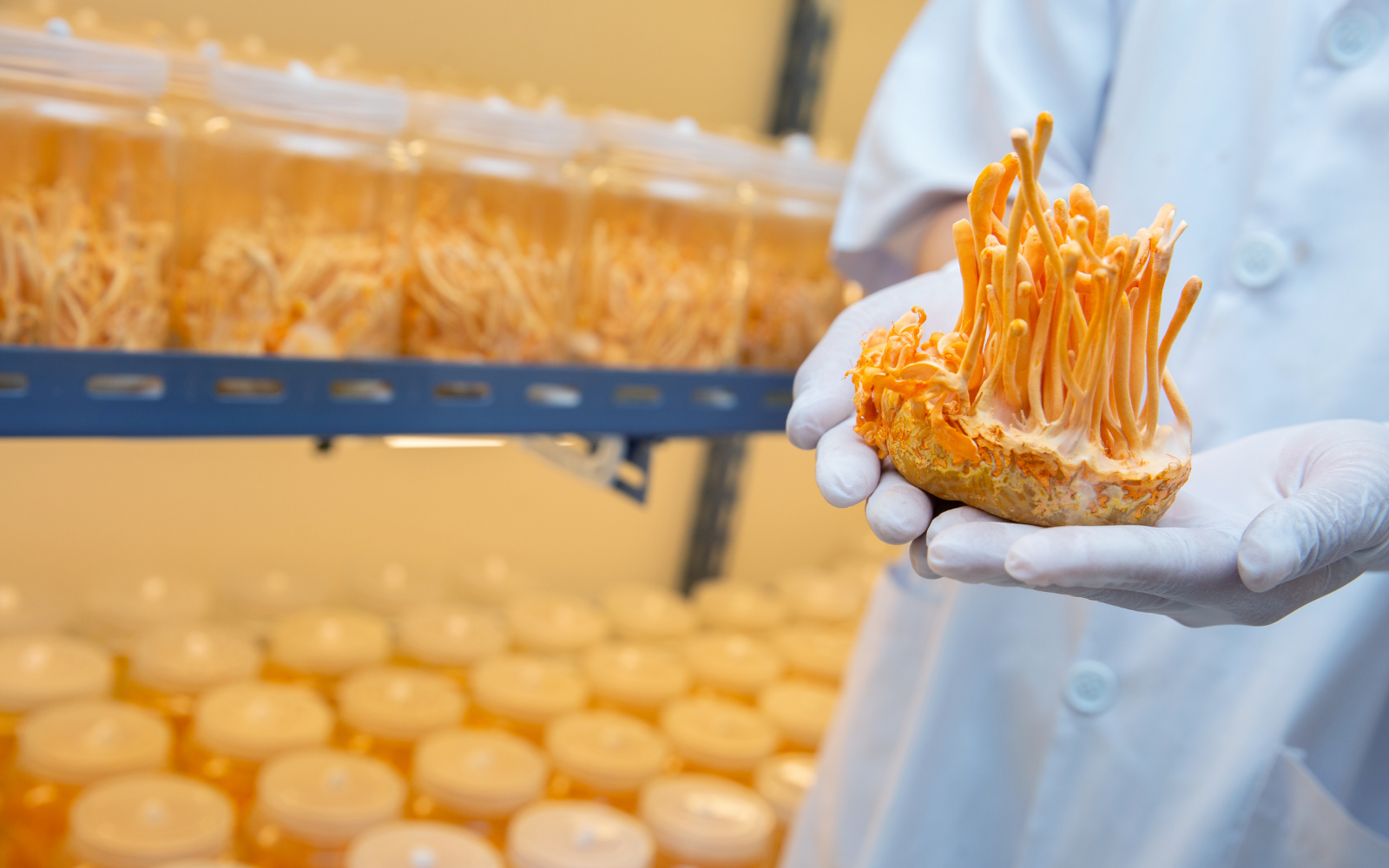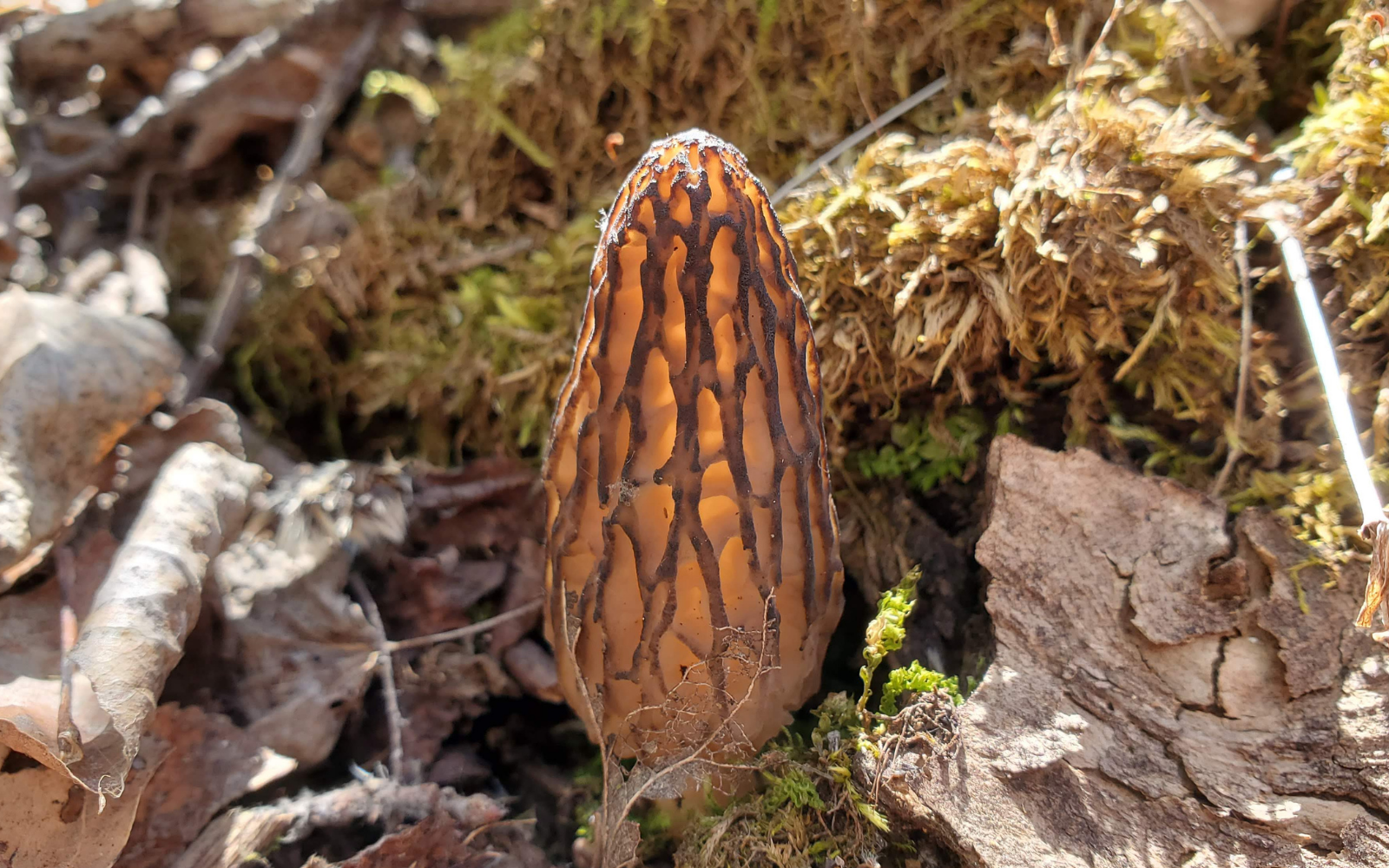When it comes to basic metabolic functions, sleep is as essential to vitality as eating and breathing. Yet, it remains sought after, negotiated, and de-prioritized for many of us – particularly those with the most demanding jobs or greatest number of responsibilities.
If you are in need of some deep, restorative sleep (and can’t seem to find it), natural herbs may be an option.
As opposed to over-the-counter or prescription sleep aids, natural herbs for sleep carry minimal side effects – and may even promote general health in other ways as well.
Inability to sleep goes hand-in-hand with depression, weight gain, stress, and overall malaise. If you are facing these types of issues, consider an herbal remedy (including mushrooms!) to help you relax and achieve therapeutic rest. Your overall health may be on the line.

Sleep: You Can’t Live Without It
Quality sleep reaps positive results across the spectrum of the human experience, from mental health to alertness to cognitive performance. Said another way, the inability to achieve daily deep, uninterrupted slumber can cause a host of health problems. Sleep research has uncovered correlations between poor sleep patterns and a host of other problems, including: (1)- Increased risk of major health decline due to heart disease, stroke, or diabetes
- Heightened risk for obesity
- Hormonal imbalance
- Disruption in puberty, growth, and development, and fertility
- Immune system suppression
- Risk of injury (e.g., falls, workplace mistakes)
- Motor vehicle accidents
- Cognitive disruption
Herbs for Sleep
Having trouble getting the zzz's you need? For anyone sleep-deprived, the following herbs for sleep may help:
1. Valerian Root
Valerian root, stemming from a tall grassland plant, is a known proponent of restful slumber. (2) Valerian root has been studied within the medical community and is generally considered to be a safe alternative to the pharmacological approach to falling/staying asleep. Be sure to select a quality supplement, and be mindful of the potential for side effects (dizziness or nausea). Overall, it is one of the top natural supplements known to promote sleep in those who have difficulty settling.
2. Chamomile
Chamomile has been relied upon for centuries as an herb for sleep. (3) Used in tea, or as an essential oil, chamomile is an ancient remedy not only for sleep but for a host of other physiological conditions including:- Hay fever
- Inflammation & muscle spasms
- Gastrointestinal disorder
- Rheumatoid arthritis pain
- Menstrual disorders

3. Lemon Balm
Lemon balm, actually a member of the mint family, is another antiquated approach to addressing sleeplessness, anxiety and overall stress. (4) This herb has also been used historically to aid with difficult digestion, including help for infants experiencing painful gas and colic. For some, the combination of lemon balm with other known calming agents (e.g., chamomile and valerian) can bring about not only peaceful slumber but an overall sense of peace in the wake of crippling stressors and major life events.
4. Reishi Mushroom
Reishi mushrooms have been regarded for centuries as a proven way to promote restful sleep and vitality. Not only that, but the faithful Reishi can contribute to longevity by supporting cardiovascular health and boosting the immune system. (We also kinda think they’re amazingly beautiful!)
5. Melatonin
Melatonin is a wildly popular natural sleep aid, used for restless children and adults alike, that takes a scientific approach enhancing restful sleep. Unlike the other herbs for sleep mentioned, Melatonin is naturally produced in the body and essentially triggers the nervous system to begin preparing for rest time. The release in Melatonin is supposed to occur alongside the natural rise and fall of the moon and sun. However, for many, these cycles may be distorted for one reason or another. Fortunately, the proper use of Melatonin for sleep has proven safe and effective as a way to get back on track.
6. California Poppy
Being the official state flower of its namesake, California Poppy is yet another herb for sleep that is often coupled with valerian root to bring about peacefulness and serenity. California poppy – like many natural alternatives – is helpful for some in treating depression, bed-wetting, general malaise, and pain associated with blood vessel issues. (6) As well, anyone dealing with seasonal affective disorder may benefit from California Poppy.
7. Kava
Kava: fun to say, even more fun for the sleep-deprived looking for relief. Derived from kavalactones, kava is an herb for sleep that can help combat anxiety as well – a common partner to insomnia. However, kava comes with a warning for anyone with a compromised liver or hepatic system: check with your doctor first – as this herb is known to cause difficulty in liver patients, as well as anyone experiencing depression or Parkinson’s disease.
8. Ashwagandha
Ashwagandha: quite a word – and quite an herb! Known for its stress-management properties, Ashwagandha is also exceedingly useful in treating insomnia and increasing energy levels. While the word literally means “smell of the horse” in Sanskrit (due to its unique odor), it is an herb for sleep with increasing popularity for its ability to treat a host of other health conditions.
Are Herbs for Sleep Safe and Effective?
Herbs for sleep work by affecting the Gamma-Aminobutyric acid receptors in the brain (known as GABA). GABA’s play a starring role modulating neuron activity, which in turn helps to regulate calmness, coolness, and collectiveness. In other words, well-balanced GABAs are essential to achieving a successful siesta and experiencing a sense of peace amongst an otherwise stressful and anxious season of life. Lastly, a word about side effects. As always, consult your primary care provider if you are thinking about trying a new regimen, particularly if you are under a diagnosis of any of the following conditions:- Anxiety, depression, or any other mental health disorder (especially if you are taking psychotropic medications)
- Any autoimmune condition, such as rheumatoid arthritis or fibromyalgia.
- Insomnia, including the use of prescription sleep aids.


